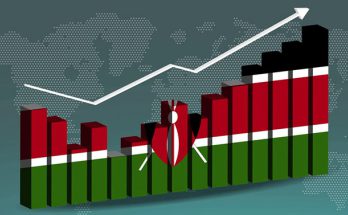 As indicated by the most recent Africa Agriculture Status Report, the African food market might be worth more than USD 1 trillion per annum by 2030. Business visionaries and the free market will primarily move this forward and build up Africa’s monetary headway through food generation. Enterprises too have chances to profit by a quickly developing food sector.
As indicated by the most recent Africa Agriculture Status Report, the African food market might be worth more than USD 1 trillion per annum by 2030. Business visionaries and the free market will primarily move this forward and build up Africa’s monetary headway through food generation. Enterprises too have chances to profit by a quickly developing food sector.
The report notes, “Agriculture will be Africa’s quiet revolution, with a focus on SMEs and smallholder farmers creating the high productivity jobs and sustainable economic growth that failed to materialise from mineral deposits and increased urbanisation”.
The report observes how 37% of the African populace lives in urban territories because of shortage of suitable investments into the food sector. This prompts job creation in underpaid and relatively less productive services. It recommends that the circumstance can be significantly changed given the framework is appropriately planned.
During the report launch, AGRA President Dr. Agnes Kalibata stated, “Africa has the latent natural resources, skills, human and land capacity to tip the balance of payments and move from importer to exporter by eating food made in Africa. This report shows us that agriculture involving an inclusive transformation that goes beyond the farm to agri-businesses will be Africa’s surest and fastest path to that new level of prosperity.” The report likewise suggests that for Africa’s agricultural upheaval to be effective, it should be recognized from others.
“It requires an inclusive approach that links millions of small farms to agribusinesses, creating extended food supply chains and employment opportunities for millions including those that will transition from farming. This is in contrast to the model often seen elsewhere in the world of moving to large scale commercial farming and food processing, which employs relatively few people and requires high levels of capital.”
The report accentuated on the point that Africa has the potential to cater to the rising demand of its quickly developing and prosperous urban populations by sustaining itself food made in the continent. It moreover recommends that Africa’s smallholder farmers can benefit from this ‘open door’ that the continent holds.
This expanding interest for African food is by and by met with imports which are worth USD 35 billion per annum and are expected to go up to USD 110 billion by 2025. This can be alleviated if Africa’s global business competence and productivity of its agricultural market is improved.



